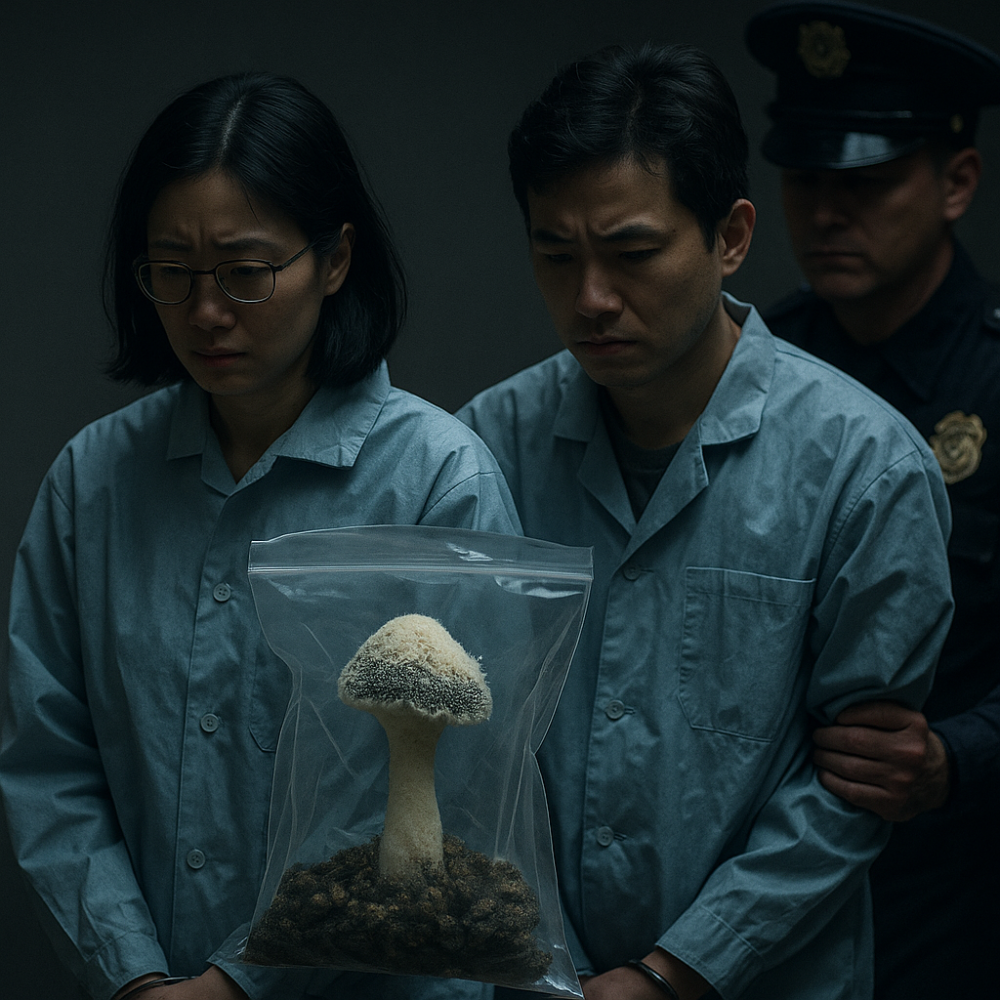In a case that has alarmed American officials and reignited fears around agroterrorism, two Chinese nationals — both scientists and reportedly a couple — have been charged with attempting to smuggle a highly toxic fungus into the United States. The U.S. Department of Justice on Tuesday revealed that the pair planned to research the fungus at an American university, potentially putting the country’s food security at serious risk.
The Accused and the Charges
According to federal prosecutors from the Eastern District of Michigan, the accused are 33-year-old Yunqing Jian and 34-year-old Junyong Liu. Jian has been taken into custody, while Liu remains at large. The charges against them include conspiracy, smuggling, making false statements, and visa fraud.
Authorities allege that the couple attempted to import Fusarium graminearum, a fungal pathogen known to cause "head blight" — a devastating disease that targets crops like wheat, barley, corn, and rice. The fungus not only destroys yields but also contaminates food supplies with mycotoxins harmful to both humans and animals.
Investigators believe Liu lied to customs officials before ultimately confessing that he brought the fungus to the U.S. for study at the University of Michigan, where Jian was employed. Crucially, prosecutors also emphasized that Jian is a member of the Chinese Communist Party — an affiliation raising red flags in light of national security concerns.
What is Agroterrorism?
Agroterrorism refers to the deliberate introduction of plant or animal pathogens into a country’s agricultural systems with the intent to cause disruption, economic loss, and societal panic. Unlike traditional forms of terrorism, agroterrorism targets food production chains — from crops to livestock — aiming to cripple a nation through food insecurity rather than immediate mass casualties.
Experts describe it as a silent but strategic weapon. Damaging agriculture can undermine a country’s economy, trigger food shortages, inflate prices, and erode public trust in institutions. In this case, Fusarium graminearum has been classified by the U.S. government as a potential agroterrorism agent due to its economic and ecological risks.
Health and Security Implications
The fungus is particularly dangerous not just for its impact on crops, but also due to its toxic byproducts. Mycotoxins released by the fungus are known to cause vomiting, liver damage, and reproductive issues in humans and animals. Officials fear that its presence, even in controlled environments, could lead to unintentional outbreaks or misuse.
Jerome Gorgan Jr., the U.S. Attorney for the Eastern District of Michigan, called the smuggling a direct threat to national security. “This isn’t just a case of academic misconduct — it’s a biological breach with far-reaching implications,” he stated.
Broader Tensions Between U.S. and China
The incident arrives amid heightened scrutiny of Chinese researchers in the U.S. Earlier this week, U.S. Secretary of State Marco Rubio vowed to aggressively revoke visas of Chinese students involved in sensitive research areas, citing security risks. In response, Beijing condemned the move as discriminatory and baseless.
This case is expected to further inflame tensions, adding fuel to ongoing debates about espionage, research ethics, and foreign influence in American institutions.
Bottom Line:
As investigations continue, the case has drawn urgent attention to the real and present dangers of agroterrorism. The deliberate misuse of biological agents — even under the guise of research — threatens not only national economies but global food security.
















